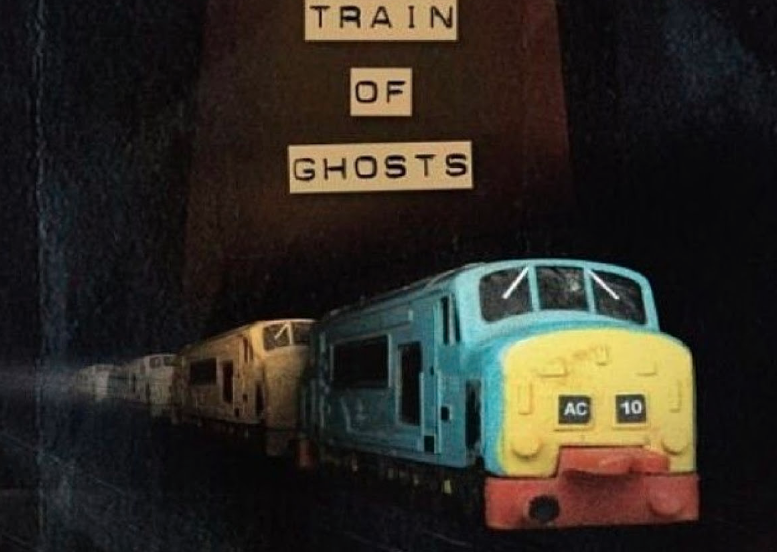G. C. Waldrep and John Gallaher, Your Father on the Train of Ghosts, BOA Editions, $16.00 (paper)
When a poem is written in the second person, it’s almost inevitable that readers will point to themselves and ask, “Who, me?” That “you” might simply point back at the poem’s author or speaker, but it can refer just as easily to everyone, the population at large. In rare instances, the “you” actually refers to someone on the other end of the line. Your Father on the Train of Ghosts, a collaboration between G.C. Waldrep and John Gallaher, is not quite epistolary. While each poet sometimes riffs on images or words from the other (the text doesn’t identify who wrote what), the two are more concerned with establishing a consistent or collective register: “We like it this way, as the room is reflected, and us with it, / but more vibrantly, crisper, so that everything / takes on a pleasing shape we’ve risen to fill.” That gentle valediction is the most recent example of contemporary work that struggles to express the exhaustion of excess; any one of the poems in this lengthy book adequately catalogues the contents of souls too burdened for certainty. Its real strength, however, comes from how two voices speak to, past, and about each other, the burden of their present literally shared and manifest as acute, if sometimes surreal, attention: “It’s your birthday, after all. / You unwrap the package / only to feel / the texture of real skin / against your skin.” The standing presumption that whatever we are reading is occasioned by—and intended for—another person does invite a certain tenderness. Even though Waldrep and Gallaher create a closed conversational loop, its effect is one of welcome.








